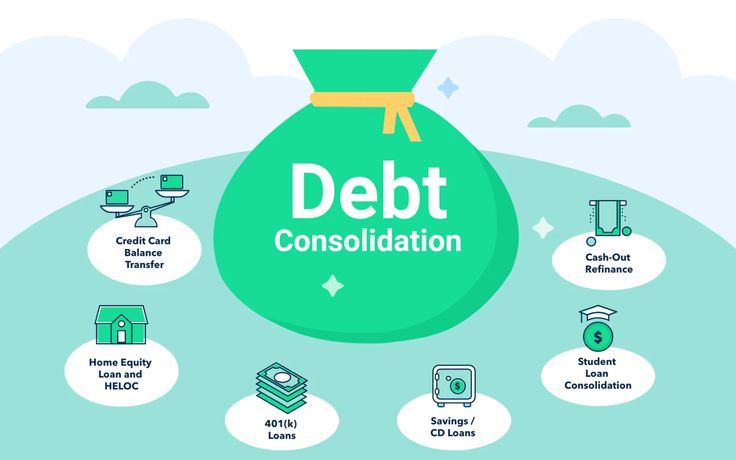
Consolidating Debt with a Personal Loan
Managing multiple debts can be overwhelming and financially draining. One effective strategy to simplify your finances and potentially save money is consolidating your debt with a personal loan. Debt consolidation can streamline your payments, lower your interest rates, and help you become debt-free sooner. This article explores the benefits, process, and considerations of consolidating debt with a personal loan.
What is Debt Consolidation?
Debt consolidation involves combining multiple debts into a single loan with a unified payment. This can be achieved through various means, but one common method is using a personal loan to pay off existing debts. By consolidating your debts, you replace multiple payments with a single, often lower, monthly payment.
Benefits of Debt Consolidation with a Personal Loan
- Simplified Finances: Managing one loan is easier than juggling multiple credit card bills, medical bills, and other debts. A single payment each month can reduce stress and help you stay organized.
- Lower Interest Rates: Personal loans often come with lower interest rates compared to credit cards. Consolidating high-interest debts into a loan with a lower rate can save you money on interest over time.
- Fixed Repayment Schedule: Personal loans typically have fixed interest rates and repayment terms. This means your monthly payment remains consistent, making it easier to budget and plan for the future.
- Improved Credit Score: Consolidating debt can positively impact your credit score by reducing your credit utilization ratio and simplifying your payment history. Making consistent, on-time payments on your personal loan can further boost your credit score.
- Debt-Free Sooner: With a structured repayment plan, you may be able to pay off your debt faster. Personal loans often have shorter terms than revolving credit, encouraging timely repayment.
How to Consolidate Debt with a Personal Loan
- Assess Your Debt: Start by listing all your current debts, including credit card balances, personal loans, medical bills, and any other outstanding obligations. Note the interest rates, monthly payments, and remaining balances.
- Check Your Credit Score: Your credit score plays a significant role in determining the interest rate and terms of your personal loan. A higher credit score can help you secure a loan with more favorable conditions.
- Shop for Personal Loans: Research different lenders, including banks, credit unions, and online lenders, to find the best personal loan options. Compare interest rates, fees, repayment terms, and any additional features such as prepayment penalties or discounts for automatic payments.
- Calculate the Loan Amount: Determine the total amount you need to borrow to pay off your existing debts. Make sure the loan amount covers all your outstanding balances to fully consolidate your debt.
- Apply for the Loan: Once you’ve selected a lender, complete the loan application process. Be prepared to provide documentation such as proof of income, employment history, and details of your current debts.
- Pay Off Your Debts: If approved, use the personal loan funds to pay off your existing debts. Ensure that each debt is fully paid off to avoid any remaining balances or fees.
- Repay the Personal Loan: Focus on repaying your personal loan according to the agreed-upon terms. Set up automatic payments to avoid missing any due dates and stay committed to your repayment schedule.
Considerations and Potential Drawbacks
While debt consolidation with a personal loan offers many benefits, it’s important to consider potential drawbacks:
- Upfront Costs: Some personal loans come with origination fees or other upfront costs. Ensure you understand these fees and factor them into your decision.
- Risk of Accumulating More Debt: Consolidating your debt doesn’t address the underlying spending habits that led to debt in the first place. It’s crucial to adopt disciplined financial habits to avoid accumulating new debt.
- Loan Approval: Approval for a personal loan depends on your credit score and financial situation. If your credit is poor, you may not qualify for a low-interest loan, which could limit the benefits of consolidation.
- Longer Repayment Period: While lower monthly payments can ease your financial burden, extending the repayment period means you might pay more in interest over the life of the loan.
Conclusion
Consolidating debt with a personal loan can be an effective way to simplify your finances, reduce interest rates, and pay off your debt faster. By carefully assessing your debts, shopping for the best loan options, and committing to a structured repayment plan, you can achieve greater financial stability and work toward a debt-free future. However, it’s important to consider the potential drawbacks and ensure that debt consolidation aligns with your overall financial goals. With the right approach, consolidating your debt can provide the relief and clarity needed to take control of your financial health.